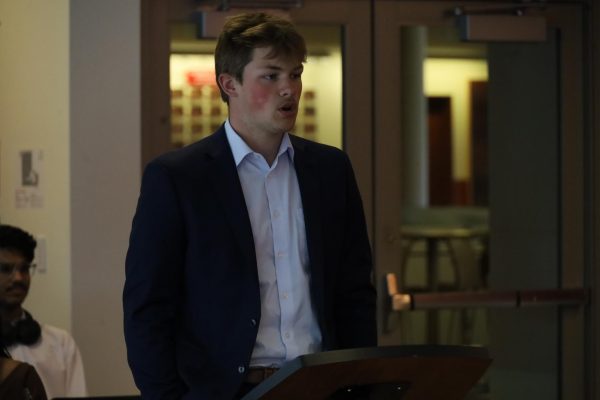Recommendations for academic integrity
April 22, 2016
A workshop addressed the current state of academic integrity at WSU on Thursday and highlighted methods of changing academic culture.
Adam Jussel, director of the Office of Student Conduct, and Phyllis Erdman, associate dean of the College of Education, lead the discussion and gave recommendations for creating an atmosphere of academic integrity.
These included nominating five student representatives to serve on the Academic Integrity Hearing Board (AIHB) in the fall.
Jussel said they hope this will help the importance of developing consistency for what is expected from students when it comes to academic integrity.
They are trying to “develop a floor, not a ceiling,” Jussel said. This would mean the creation of a standard minimum for academic sanctions throughout the university to be signed by students. Sanctions have not been decided upon.
“We want to be preventative,” Jussel said. Training for students, likely in an online module, is currently being developed to make sure students are well-educated on what academic integrity means.
A main concern is the technology involved in things like test taking, Erdman said. She recommended establishing faculty expectations which look at whether similar tests are being taken every year. Erdman said online tests need to have proctoring to prevent academic integrity violations.
The AIHB is working on training modules for students and faculty, recommendations for a syllabus statement, and developing appropriate sanctions.
The academic integrity process is going to stay the same, but they hope educating students and staff will make the process smoother and better used, Jussel said. He said their goal is “to educate, not punish.”
In this process, it is most important for students to know they have the right to appeal. The AIHB wants students to be heard, Jussel said.
“This does not resolve itself in a year, or three months,” Erdman said. “It’s a culture change over time.”
Reporting by Shannon Steffen



















